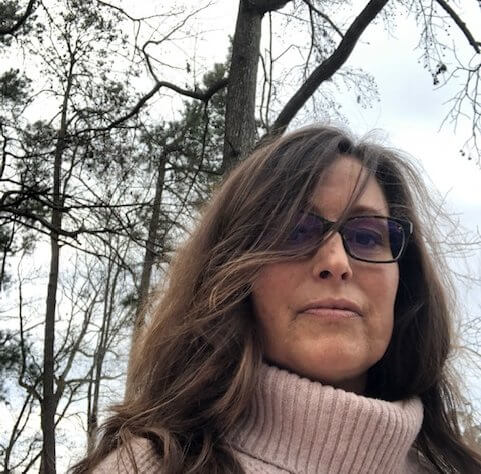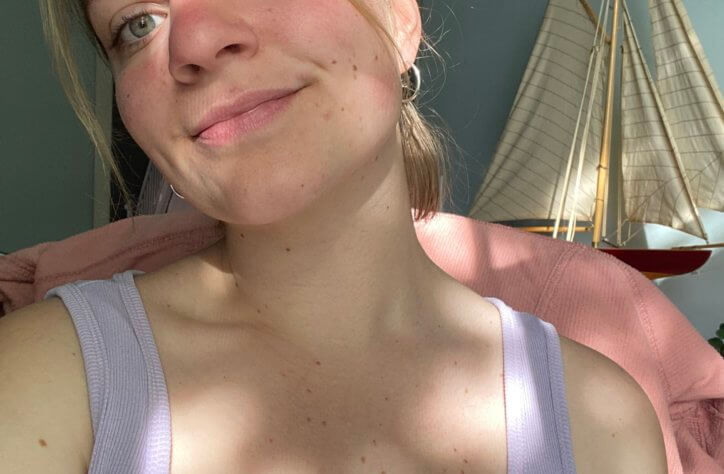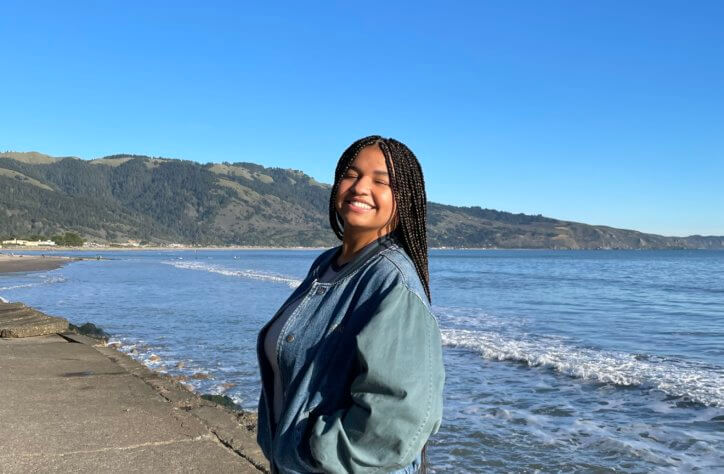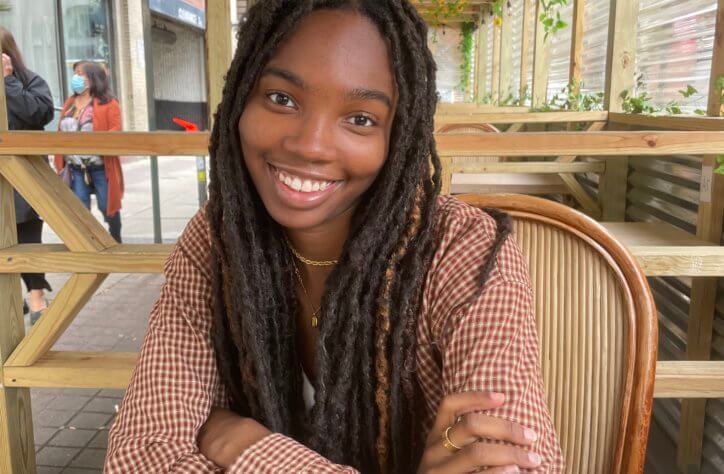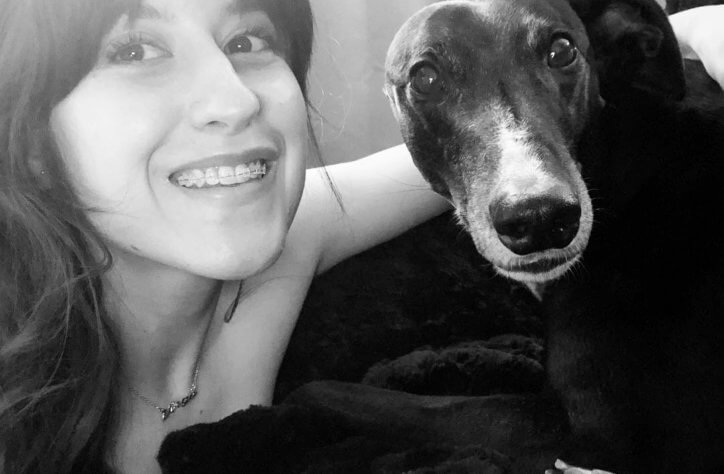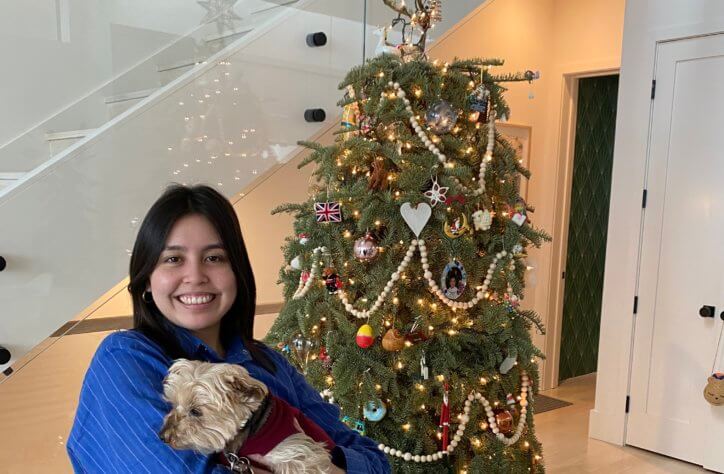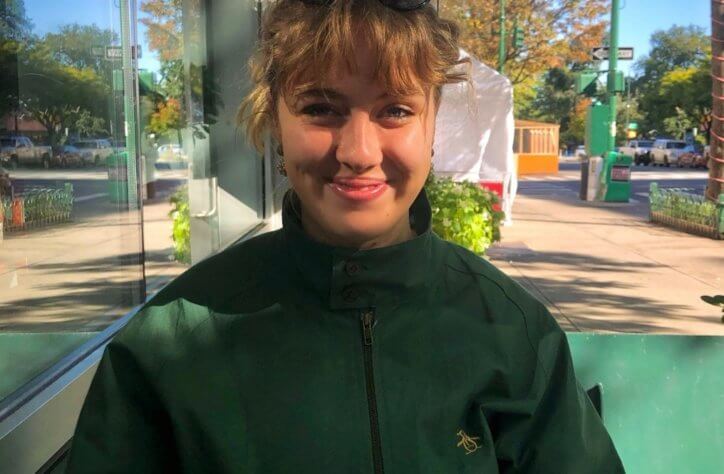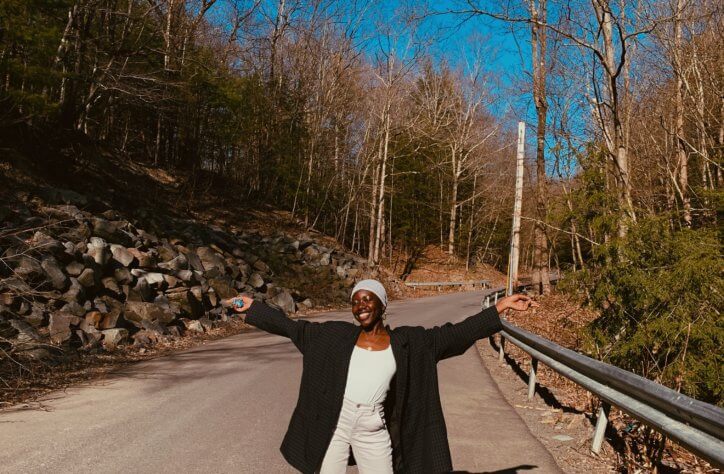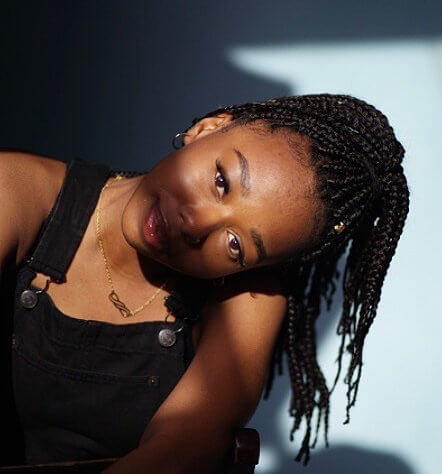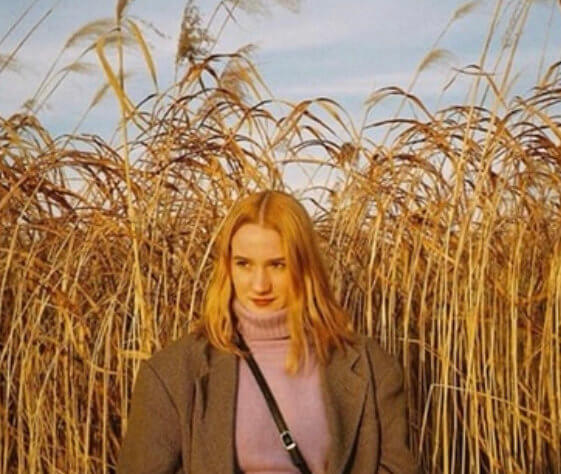“Grief, when it comes, is nothing we expect it to be. Grief has no distance. Grief comes in waves, paroxysms, sudden apprehensions that weaken the knees and blind the eyes and obliterate the dailiness of life” – Joan Didion
As summer shifts to Autumn, year after year, I sense I have been wrenched through a thick black rubber wall into a very different world. No matter how ardently I mend myself throughout the year, the endless stitching up of every loose seam of my being is futile, when Autumn comes along the threads of my wounds wear thin. I unravel in the annual reminder of that Autumn seven years ago, an annual plunge into a familiar sadness and grief.
On the 28th of September, 2011, my dad died of an autoimmune disease called vasculitis, aged fifty-one. I was eighteen and it was my first day of university. I was having coffee with some other students while waiting for our library tour when my mum called me from the hospital. ‘It’s not good,’ she said, ‘get in a cab now.’
For the majority of my life I had known my dad as unwell, yet because of it’s normality I had never suspected he would die. It was not until the last year of his life that I started to sense his condition was not improving. His body became frail and bruised and it became impossible for him to hide his pain from us for any longer.
It is said that people often have a sense of when their own death is approaching, my dad knew, yet it was hard for us to tell… or at least to accept. He had lived his whole life as if death was at his door, a fullness that I am so glad for, yet there is nothing I could have done to prepare myself. Death is certain and such is the same for grief. ‘If we love we grieve,’ in the words of Nick Cave, ‘that’s the deal.’
Grief has been my world for the past seven years, it is a familiar place that I know so well and yet can’t understand. When I talk about grief with someone who knows it, it is as if the sharing of this world is the only real experience of this world. It is as if we share some kind of secret about reality and it’s impermanence. When people see me in mourning I feel as if they are recognising the truest part of me, for in some unfortunate sense I have come to define myself by my grief and the way it has shaped my life.
The first year after my dad died my whole life was new; I was living alone in student accommodation, I was spending my days with strangers and I had no father. The people around me had no idea what I was going through. It was a kind of embarrassment to tell them as if it would be a burden to share. My grieving took place mostly in private and I liked it that way. I kept my pain to myself and became an expert in knowing when I was about to cry. I familiarised myself with all the isolated spots in the university where I could find refuge, often rushing out in the middle of a lecture to control an outburst of tears. I got into the habit of wearing a brave face.
After the one year anniversary of my dad’s death, I started to experience the backlash of hiding my emotions. I suffered from uncontrollable panic attacks and extreme anxiety for which I was heavily medicated. I was shaken onto a path of desperate self-discovery, divulging in any practices that would sweep me up off grief’s floor. It wasn’t until six years after my dad’s death that I finally decided to see a grief counsellor. I have learnt that the grieving process is a long one, and when one is in the midst of it, one’s sense of time is utterly distorted.
In the year that followed my dad’s death, I had many people come and assure me that it would get better, that time would heal. I was given a sense that my grieving would take on some kind of linear progression. I have since learnt that grief is anything but linear. The stab of its knife is just as painful now as it was when my dad first died. In some moments I feel that it has got worse, as I have come to recognise other stages in my life in which I would have needed him.
My dad’s death, like a river, has carved out deep tunnels within my being through which my emotions travel. The depth of my grief has allowed a depth of all emotions. With these rivets in place, whether it’s sorrow or love, I am able to feel everything far deeper than I could have before. Deeper pain and deeper joy, a blessing and curse, yet it is something I am grateful for.
Grief brings with it a storm of unexpected emotions, it is messy and chaotic and often far more unflattering than the pious and graceful sadness that is often depicted. The empty grey ache of my grief is often accompanied by anger, envy, resentment and regret.
I remember the strange feelings of jealousy that would come over me when my dad’s friends would share stories of him. I enjoyed learning more about what he was like in his youth but I couldn’t help but envy the times they had had with him compared with my short lifespan. I was eighteen and there was much about my dad that was kept from me in my immaturity. In these stories my dad became a stranger, a figure so isolated from my experiences of him as a father. With every new detail I gained about my dad’s character, the image I held of him became harder to maintain, violated by others impressions. I was angry when people spoke about my dad, and angry when they didn’t.
I feel a deep sense of shame and regret when I think back to the angsty teenager my dad left behind, the way I shut him out as most young girls do. I know that if he were alive now we would be close friends, he is the one I would want to talk with about my grief. I bite my tongue when friends complain about their fathers, longing for the father daughter relationship that appears so valuable.
I know there is still some part of myself that doesn’t believe him gone, I still wake up in the night with reoccurring dreams of him returning from a seven year holiday. In my dreams, I am finally able to ask him that one question I never could, to seek advice from a father in a way I never can. I am able to hold him and say how sorry I am for not saying a proper goodbye when I last saw him in intensive care. I am able to say how sorry I am for being scared of his illness, for being too shy to tell him how I felt, and for not being brave enough to ask questions for fear of honest answers.
In an effort to find acceptance of what happened I replay the moment of his death over and over; the feeling of his hand in mine as it went cold, the way the lines on his face became smooth as he let out his last breath. A sigh of relief at the end of suffering.
It has been helpful for me to find a new kind of relationship with my dad, and I do talk with him as if he was still here, feeling into my heart for his response. I leave him gifts by his grave, I write him letters, continuously finding ways to acknowledge and honour him in death. No matter what anyone says about what happens after one dies, I feel supported by a sense that I can still find ways to connect with my father. I find him in the trees and the soil, in the wind and the waters. I find a relationship with something beyond what I see in the physical realm, a feeling of being held by this earth in the way that my father held me.
In practical terms, there are many actions that have helped me in grief. I seek solace in writers, artists and spiritual teachers who have found a language that touches on this space beyond the physical, the space of death and grief. I find nourishment in circles where I can wear my heart on my sleeve and speak my grief. I am comforted by the natural world, and the things that never change. There are also things that I do that are unhelpful. I gorge on chocolate and I binge on my sadness. I become selfish in my grieving and impatient with what I perceive as others emotional immaturity.
In the past seven years that I have got to know my grief and its various forms, it has become a kind of safe space, an emotion I recognise so well. I take others bereavements on as my own, feeling comfortable in sadness, somehow, not able to let it go. If I let go of my grief I let go of him.
In times when I fail to meet my expectations of myself and feel behind in life, I have to remind myself of all I went through, to find forgiveness for my own uncertainty and disarray, to recognise how strong I am. At other times, when I am lost in the cathartic pool of grief, I have to snap myself out of my habitual emotions, to recognise how lucky I have been for all the support I have received. To remember the lessons I have gained.
Every Autumn I watch the leaves fall, I watch the plants turn to seed, I watch nature shift from life to death. I become nostalgic in the memory of my fathers death and the journey my grief has taken me on. Confronted with the mortality of all things I am able to sit more comfortably in my loss and in the acknowledgement of my own mortality. With these reminders, I make the choice to live a life more full, guided by certain values and priorities that have been gifted to me in grief. Where I may have felt restricted by life, when confronted with the impermanence of all things my perception becomes one of abundance, I cling to nothing. There is a sense of liberation in this knowing, a sense that death can be the hopeful reminder for us to let the small things go and relish in the joy of living.
